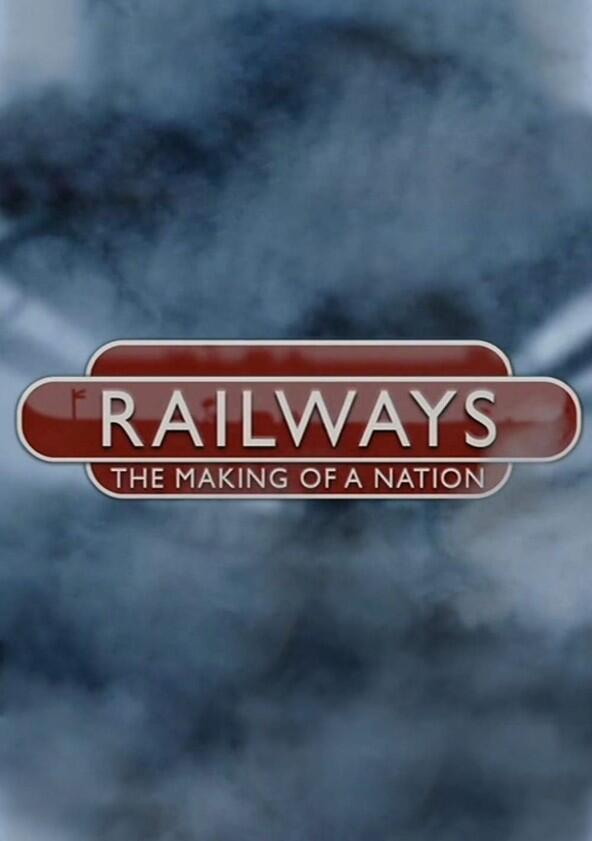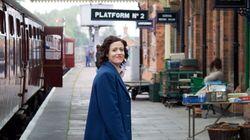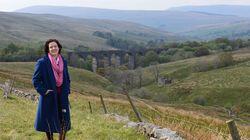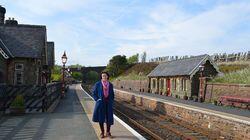Railways: The Making of a Nation - Season 1

Season 1

Episodes

Time
Historian Liz McIvor explores how Britain's expanding rail network was the spark to a social revolution, starting in the 1800s and continuing through to modern times. A fast system of transportation shaped so many areas of our industrial nation - from what we eat to where we live, work and play. The railways generated economic activity but they also changed the nature of business itself. They even changed attitudes to time and how we set our clocks. Our railways may have reflected deep class divisions, but they also brought people together as never before, and helped forge a new sense of national identity.
This episode looks at how you organise a rail network in a country made up of separate local time zones and no recognised timetables. Before the railways, our country was divided and local time was proudly treasured. Clocks in the west of the country were several minutes behind those set in the east. The railways wanted the country to step to a new beat in a world of precise schedules and timetables that recognised Greenwich Mean Time. Not everyone was keen to step in line, and some complained about the new world of one single time zone and precise schedules.

Capitalism and Commerce
Episode two focuses on Capitalism and Commerce. The railways stimulated great changes to the nation's economy and they also changed the way business was done. This encouraged a new generation of mechanical engineers, skilled workers, managers and accountants. Originally, local railway entrepreneurs viewed trains as vehicles for shifting raw materials, stock and goods, but they soon discovered that there was money to be made from transporting people also.
Places such as Derby became known as ‘railway towns'. Derby was central to the new network and home to the engineers who made and maintained locomotives and carriages. However, the railway ‘boom' of the 1840s also came with a ‘bust'. A new age of middle-class shareholders who invested in the railways soon discovered what goes up can also go down. In addition, there were stories of railway rogues and dodgy dealings. Railway companies recovered from the crash and continued to develop as complex national business organisations capable of building great structures such as the Ribblehead Viaduct in Yorkshire and St Pancras Station in London.

The Age of Leisure
The idea of excursions to distant places became popular from the 1840s onwards, as people began taking day trips and seeing parts of the country they had never seen before.
However, it wasn't all sun, sea and sand - some excursion trains were set up to satisfy the public's desire to witness public executions and bare-knuckle prize fighting; other lines transported people to enjoy horse racing and sporting events.
Thousands visited resorts, spa towns and the coast, and a new wave of Victorian tourists spent their money on holidays and visited hotels at train stations and beyond. The ultimate experience was often to head to the hills and sample clean air, far away from the industrial grime and pollution, and working-class northerners now had access to the beautiful Lake District.
Historian Liz McIvor explores how Britain's expanding rail network was the spark to a social revolution, starting in the 1800s and through to modern times. A fast system of transportation shaped many areas of our industrial nation - from what we eat to where we live, work and play. The railways generated economic activity but they also changed the nature of business itself. They even changed attitudes to time and how we set our clocks! Our railways reflected deep class divisions, but they also brought people together and helped forge a new sense of national identity.

The New Commuters
The railways allowed Brits to live further away from their places of work. Throughout the 19th and 20th centuries the railways encouraged the development of suburbia inhabited by a new type of resident and worker - the commuter.
In some cases new places emerged on the map, simply because of the railways - places like Surbiton and Kingston-upon-Thames. Liz visits nation's largest commuter zone, London and the south east of England. The Victorian rail network was never part of one single grand plan, but it emerged and evolved, line by line, over decades. For today's commuters, work is still going on to build a network that keeps up with their needs.
Historian Liz McIvor explores how Britain's expanding rail network was the spark to a social revolution, starting in the 1800s and through to modern times. A fast system of transportation shaped many areas of our industrial nation - from what we eat to where we live, work and play. The railways generated economic activity but they also changed the nature of business itself. They even changed attitudes to time and how we set our clocks! Our railways reflected deep class divisions, but they also brought people together and helped forge a new sense of national identity.

Food and Shopping
The railways changed what we eat and the culinary tastes of the population. Moving produce around at speed was suddenly possible - fresh meat, wet fish, dairy, fruit and veg, were now widely available. And it was in London where arguably the nation's diet changed the most. With a new system of rapid transport it was now possible for the capital to enjoy food supplies from all corners of the nation. Diets improved in terms of the variety and quality of food available. Victorian men and women developed a taste for one particular dish that would be popular with the masses for generations to come - fish and chips.

A Touch of Class
Trains reflected class divisions, with separate carriages for first, second and third class passengers. Yet, seen at the time, they were also bringing people physically closer together.
In the early 1800s Britain was clearly divided between upper, middle and working classes. On the railways they shared the same stations and arrived at the destination at the same time. The trains gradually acted as a great catalyst, mixing the country up as people travelled to regions and places for the first time.
Locations, accents, cultures and fashions were all new. The nation's relationship with royalty also changed. Queen Victoria was now able to venture far and wide across her kingdom and visit more of her subjects. Over time Brits developed a stronger sense of shared identity and culture.
Recently Updated Shows

America's Got Talent
With the talent search open to acts of all ages, America's Got Talent has brought the variety format back to the forefront of American culture by showcasing performers from across the country. The series is a true celebration of the American spirit, featuring a colorful array of singers, dancers, comedians, contortionists, impressionists, jugglers, magicians, ventriloquists and hopeful stars, all vying for their chance to win America's hearts and the $1 million prize.

Gordon Ramsay's Secret Service
Restaurateurs who are looking for a quick fix or social media glow-up are in for the surprise of their lives when famed culinary titan Gordon Ramsay trades his signature chef knives for a state-of-the-art surveillance vehicle and cutting-edge spyware in FOX's all-new unscripted series, Gordon Ramsay's Secret Service. In a Gordon Ramsay series first, Chef Ramsay will venture into struggling restaurants under the cover of night. With the help of a secret source on the inside, he'll gather raw, unfiltered evidence and get a 360-degree view of the major issues facing each restaurant. This insider will not only remain a secret to the staff, but will also help Ramsay infiltrate the restaurant after-hours for a dramatic nighttime black light kitchen investigation that reveals more filth and grossness than ever before. By the time Ramsay reveals his identity, it will be too late for staff to cover up their culinary crimes. Gordon Ramsay's Secret Service will be his toughest assignment yet as he takes drastic measures to transform not only the restaurant but also the staff, because Gordon knows he can upgrade the menu and renovate the restaurant, but the most important change has to come from the people. Are the restaurant and staff willing to accept Gordon's mission, or are they too far gone to be saved?

WWE NXT
Each Wednesday at 8:00 p.m. ET, WWE Superstars and Divas of tomorrow face off on WWE NXT, a one-hour weekly show that features the brightest and best of WWE's rising stars. WWE NXT showcases the Superstars and Divas from WWE's Performance Center as well as appearances from WWE Superstars and Legends in an intimate setting. WWE NXT broadcasts from the state-of-the-art Full Sail LIVE venue on the Full Sail University in campus in Orlando, Florida.

The Snake
The Snake will follow 15 people from various professions trying to manipulate their way to becoming that week's snake, who decides who stays and who leaves the show, through a series of challenges. Each week, the winner of each challenge earns control of ‘The Saving Ceremony', an elimination that is about who will save certain contestants with people making friends, faking friends, or sparking romantic connections with the winner taking home $100,000.

History's Greatest Mysteries
History's Greatest Mysteries will investigate a wide range of historically compelling topics and the mysteries surrounding each including the Titanic, D.B. Cooper, Roswell, John Wilkes Booth, and more. Each program within the franchise will showcase fresh, new evidence and perspectives including never-before-released documents to the general public, personal diaries and DNA evidence to unearth brand-new information about these infamous and enigmatic chapters in history.